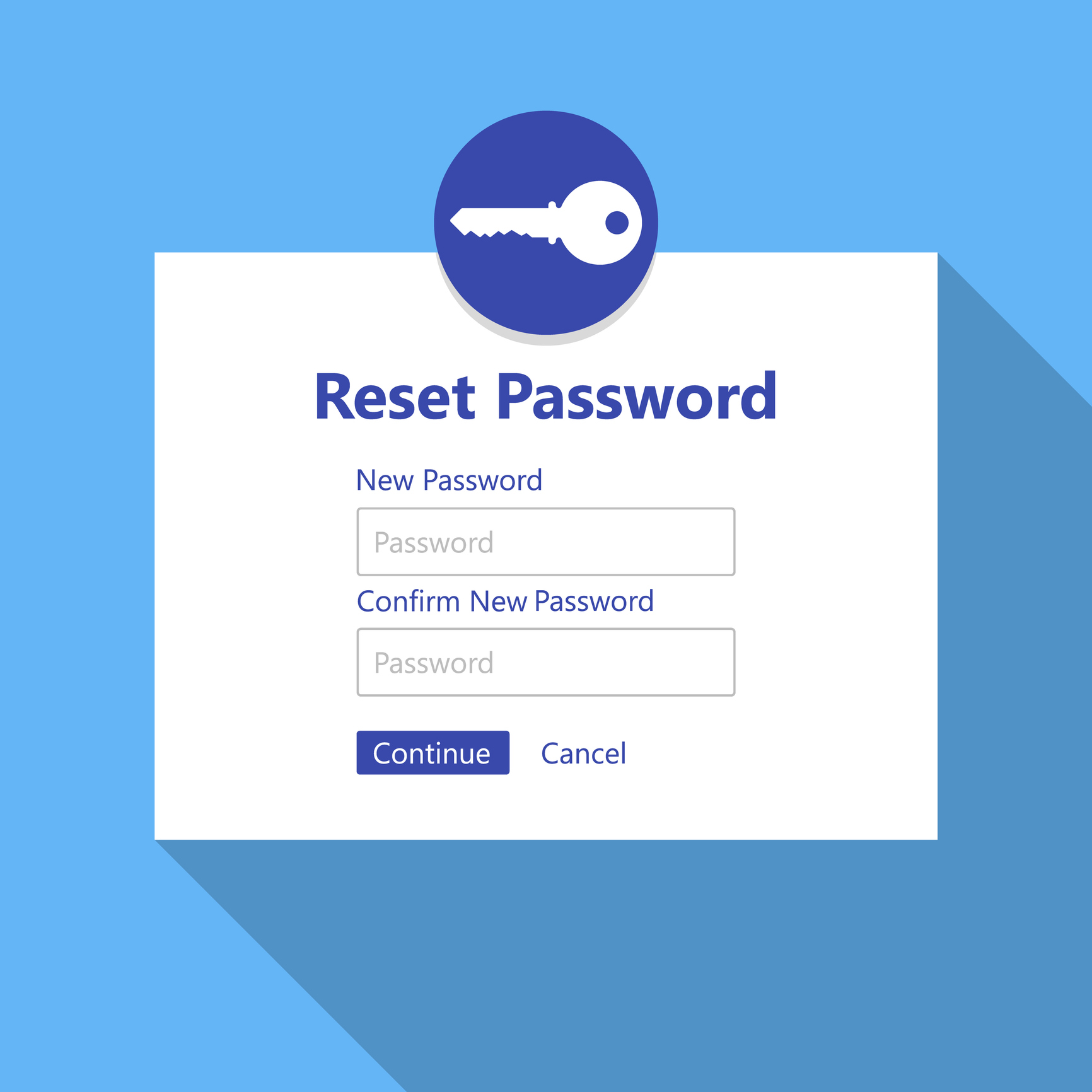9 a.m. - Drop off
9:10 a.m. - Tardy
3:20-3:30 p.m. - Pick up


Orientation - 8/26 at 11 am and 5 pm
Meet and Greet - 8/27 from 4 pm - 6 pm
Aug 21st
3-4pm 6th Grade
4-6pm 7-8 Grade
August 21st from 4 - 6 Floating
Wednesday, August 20th from 4:00-6:00.
NOTE: Roanoke Rapids Early College and Roanoke Rapids High School lists will be given out by individual teachers.
August 21st from 4 - 6 Floating
Thursday, August 7th
9:00–11:00 AM
1:00–3:00 PM.
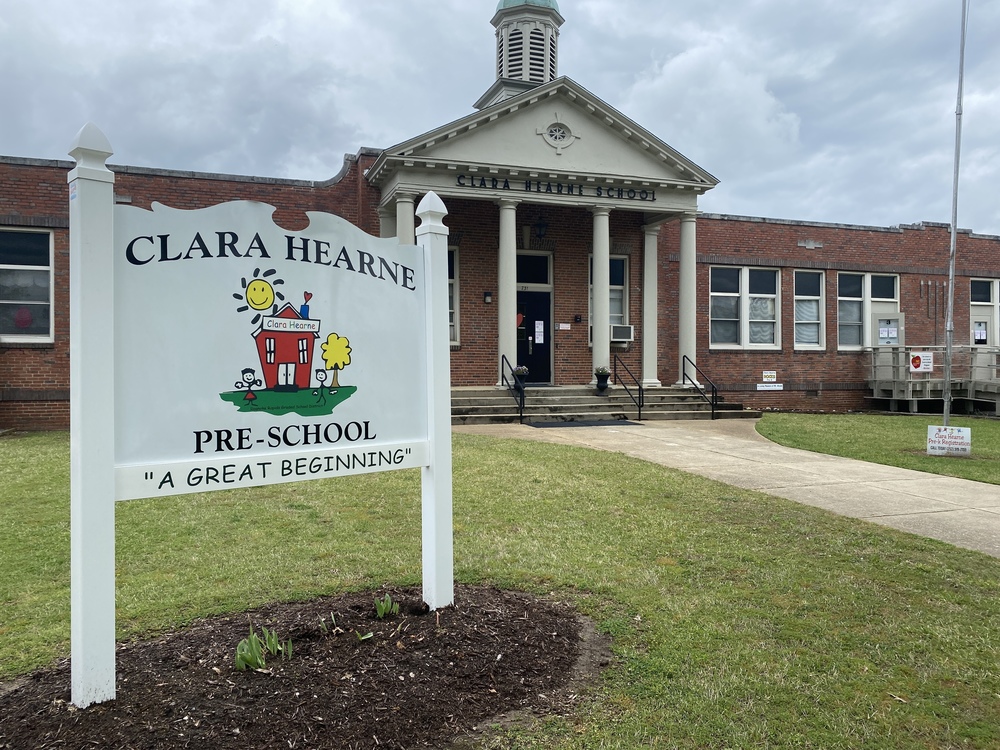
9 a.m. - Drop off
9:10 a.m. - Tardy
3:20-3:30 p.m. - Pick up

7:45 a.m. - Building opens
8:05 a.m. - Tardy
3:05 p.m. - Dismissal
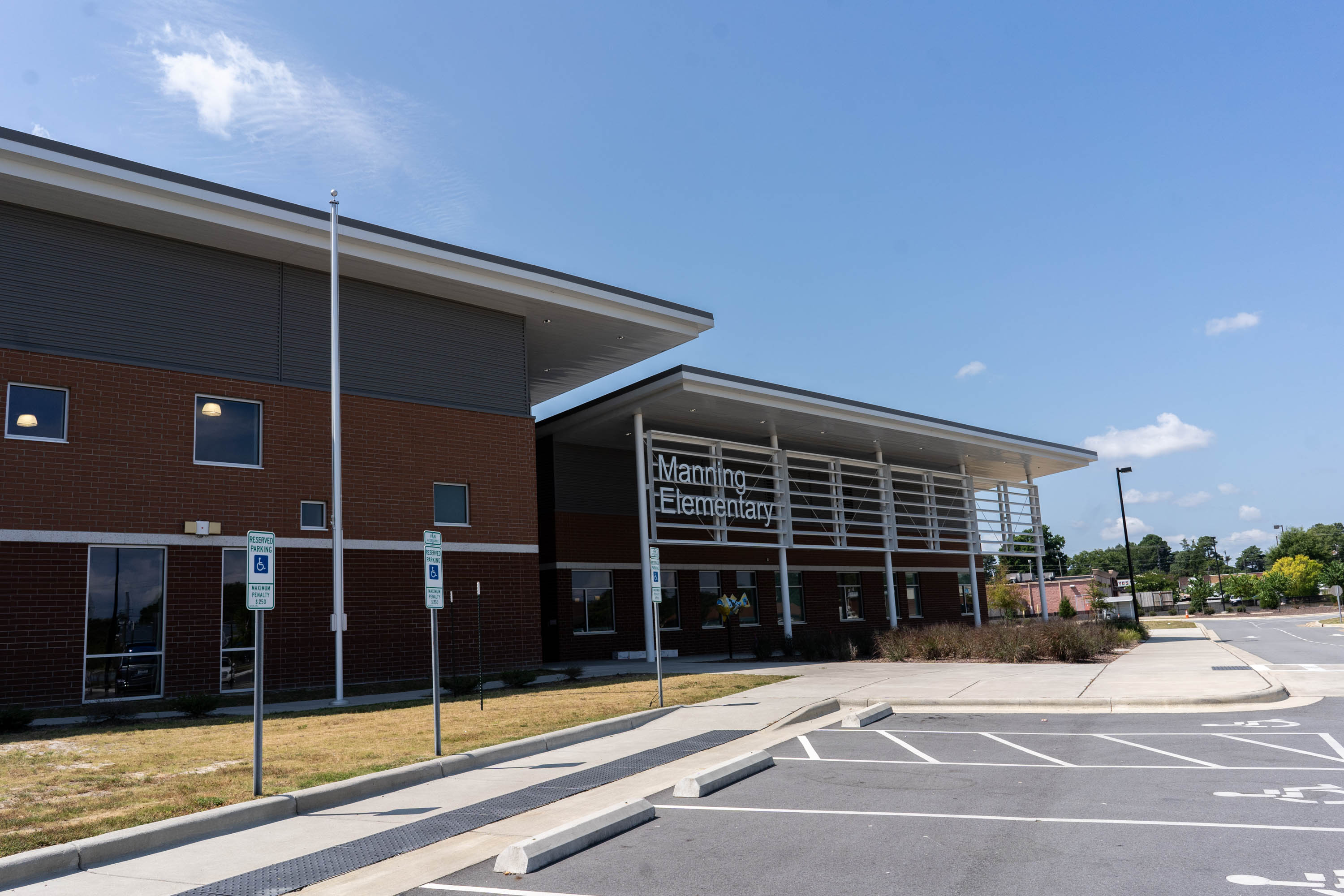
7:45 a.m. - Building opens
8:05 a.m. - Tardy
3:05 p.m. - Dismissal
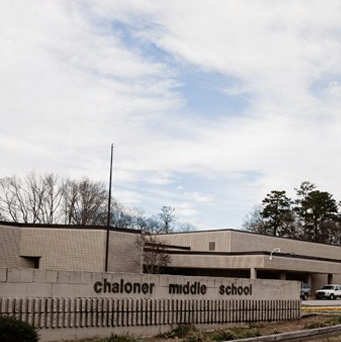
7:15 a.m. - Building opens
7:30 a.m. - Tardy
Dismissal - 2:35 p.m.
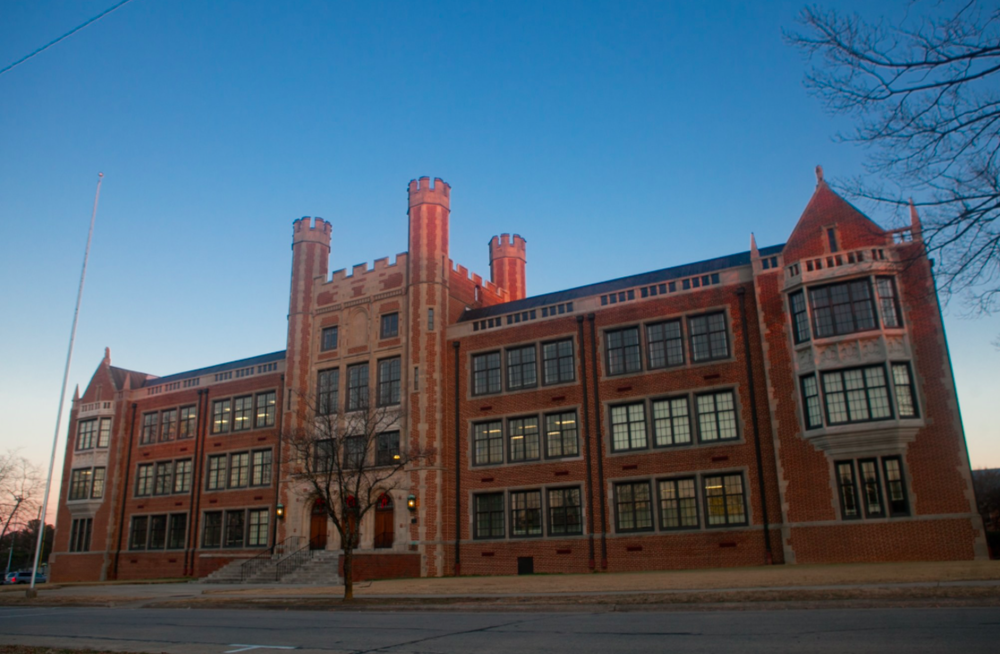
8:15 a.m. - Building opens
8:35 a.m. - Tardy
3:35 p.m. - Dismissal
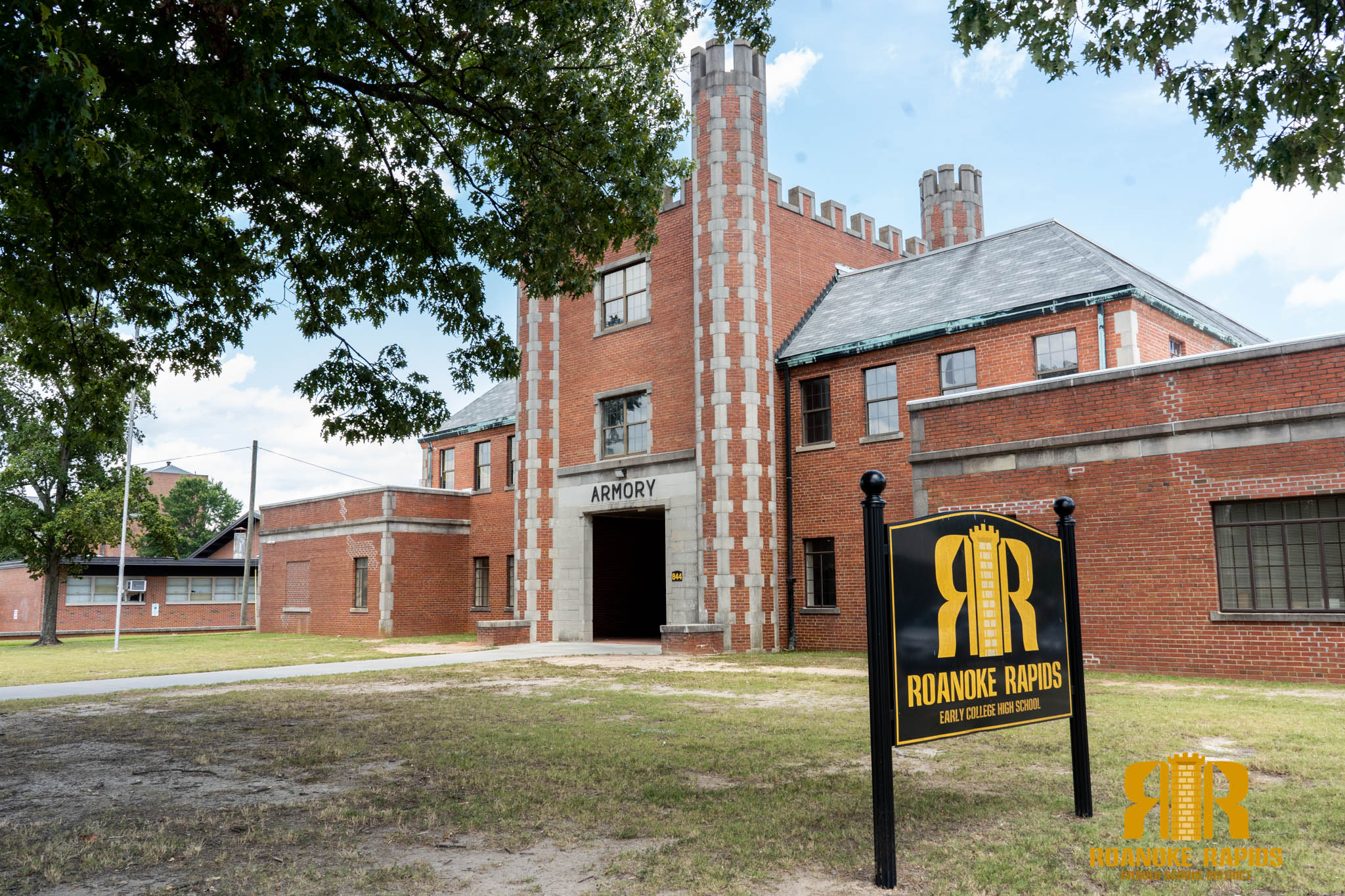
8:15 a.m. - Building opens
8:35 a.m. - Tardy
3:35 p.m. - Dismissal

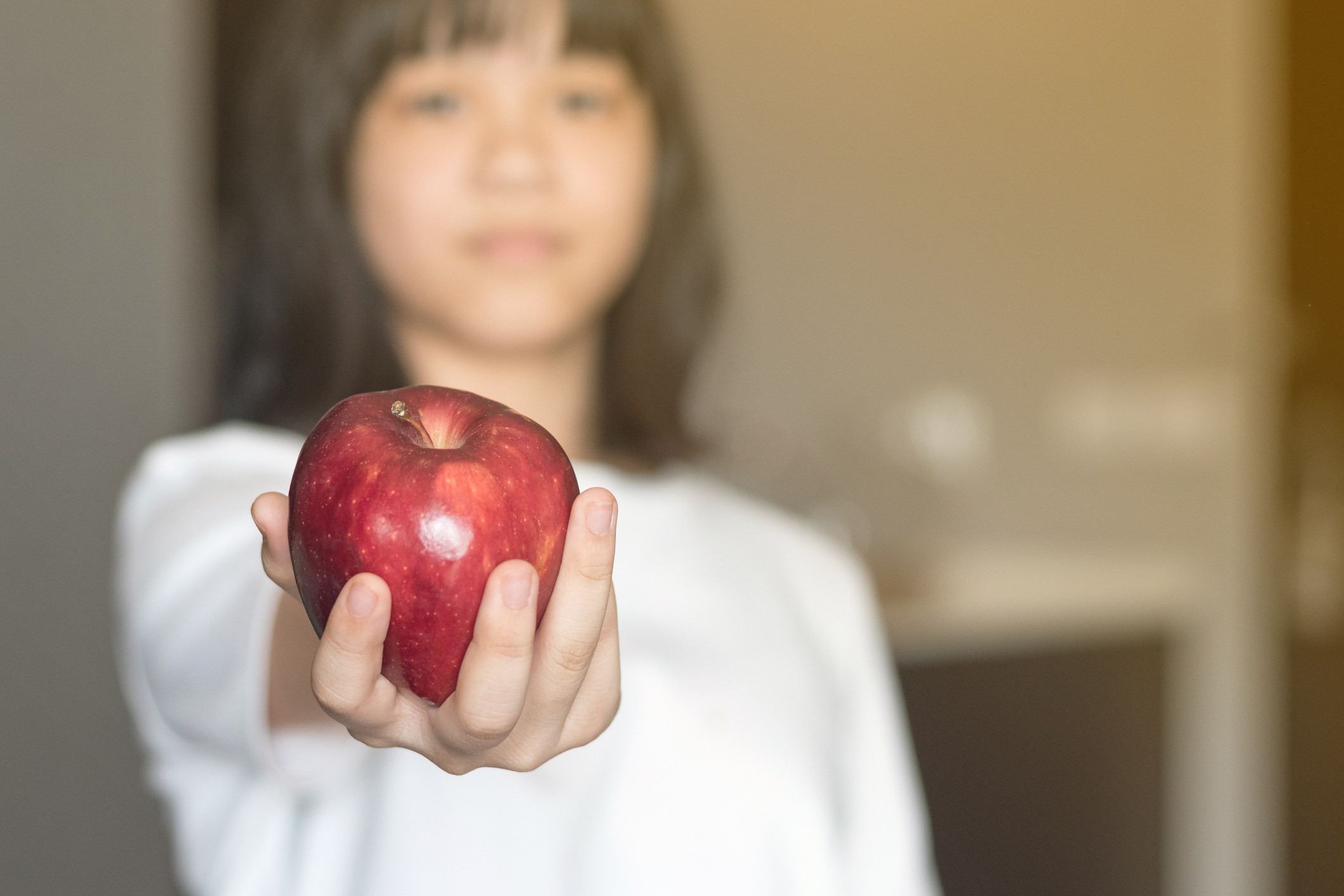
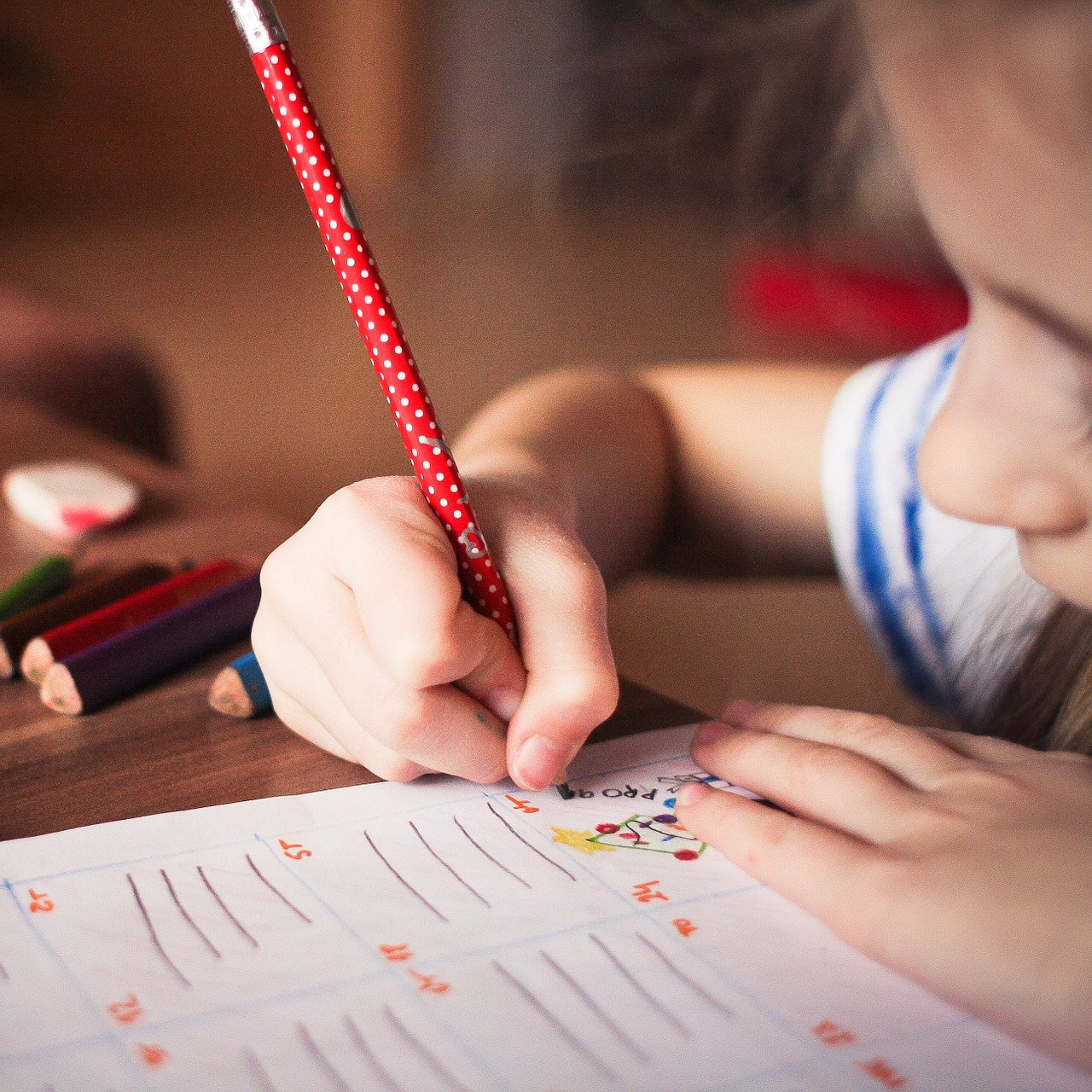
Place to Play operates from 6:30 a.m.- 7:45 a.m. Afternoon hours are until 6 p.m.
Our 2025-2026 Place to Play application is LIVE! Please click the link Place to Play Application to submit a separate application for each child that will attend Place to Play. Once this application is complete, please send or bring payment to the office located at 536 Hamilton Street, Roanoke Rapids, NC 27870 (Building C). For more information, please call 252-519-7700.
RRGSD Families,
Welcome back! We’re so glad to have your children with us for the 2025–2026 school year!
To keep you informed and involved, we’re continuing to use Rooms, our two-way communication tool that helps you stay connected with your child’s teachers and school staff.
And this year, the experience will be even better.
To get the most out of the new updates, be sure to download the RRGSD, NC app available in the App Store and Google Play. It's the easiest way to et messages, announcements, and updates—all in one place, and always in our school’s brand.
What’s new this year?
SMS Notifications
You’ll now receive text message notifications whenever a new message or announcement is sent. Each text includes a direct link to view the content in your mobile browser or in the app.
→ Click here to learn how to set your notification preferences.
One Messaging Inbox
Our school app has been updated to give you one, single place to see all of your messages across all children. From this inbox, you can read, reply, or start new messages.
Upgraded Messaging Features
And, our messaging experience now lets you react to messages with emojis, respond in threads, send photos and videos, mute group messages, and more!
Check out this overview of the new experience, or watch this short video to learn more about what’s new for this year.
Here’s to a great year ahead!
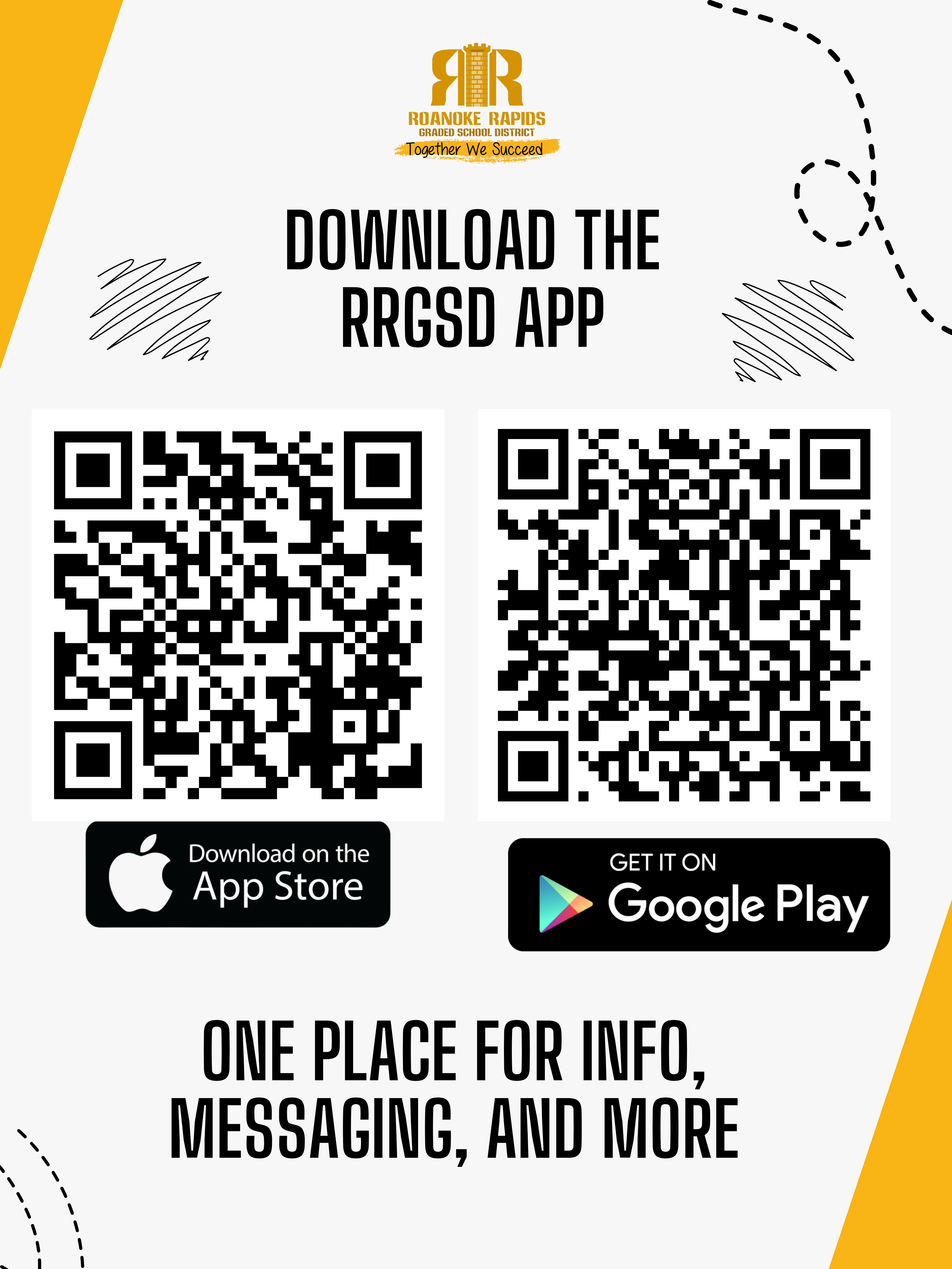
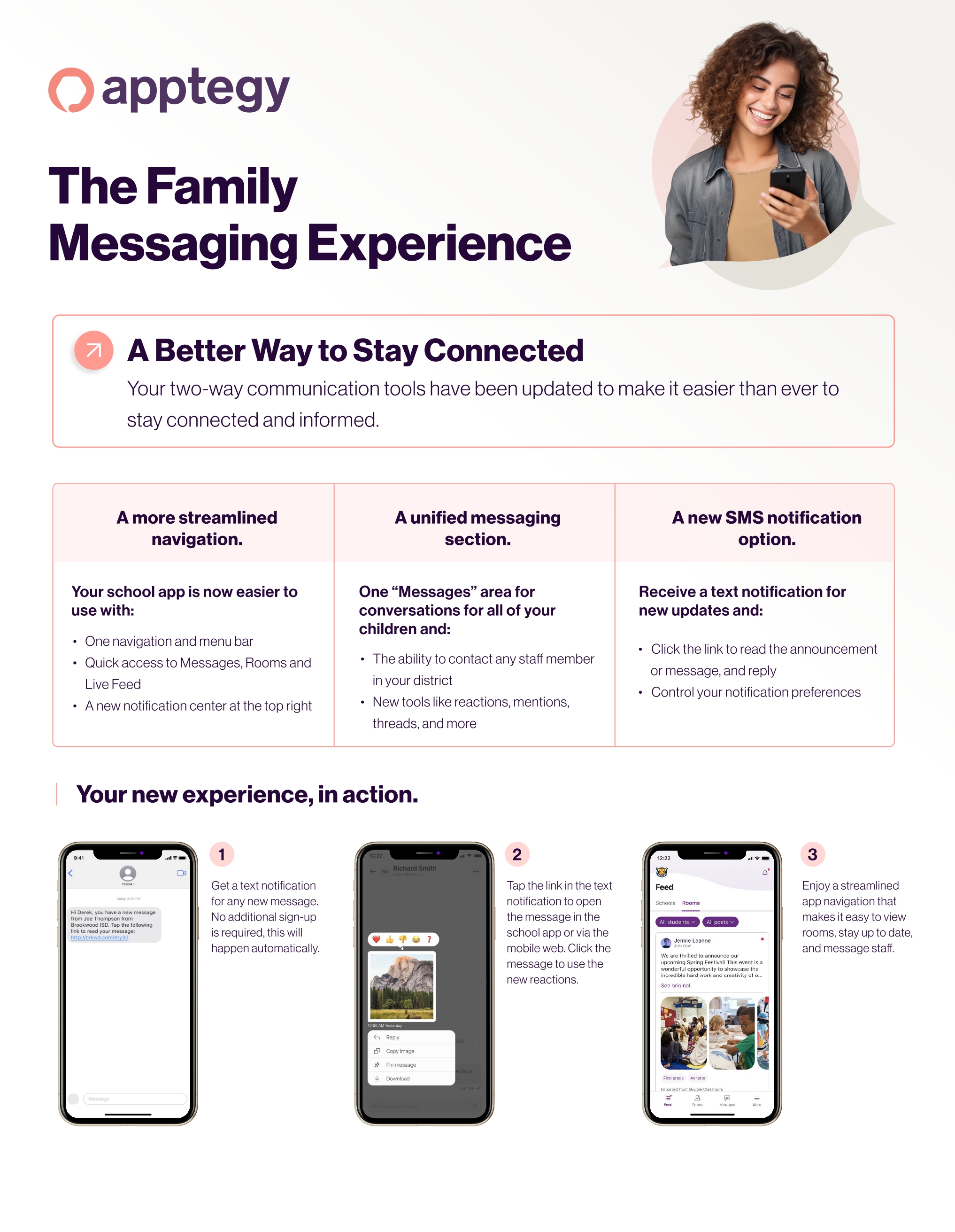
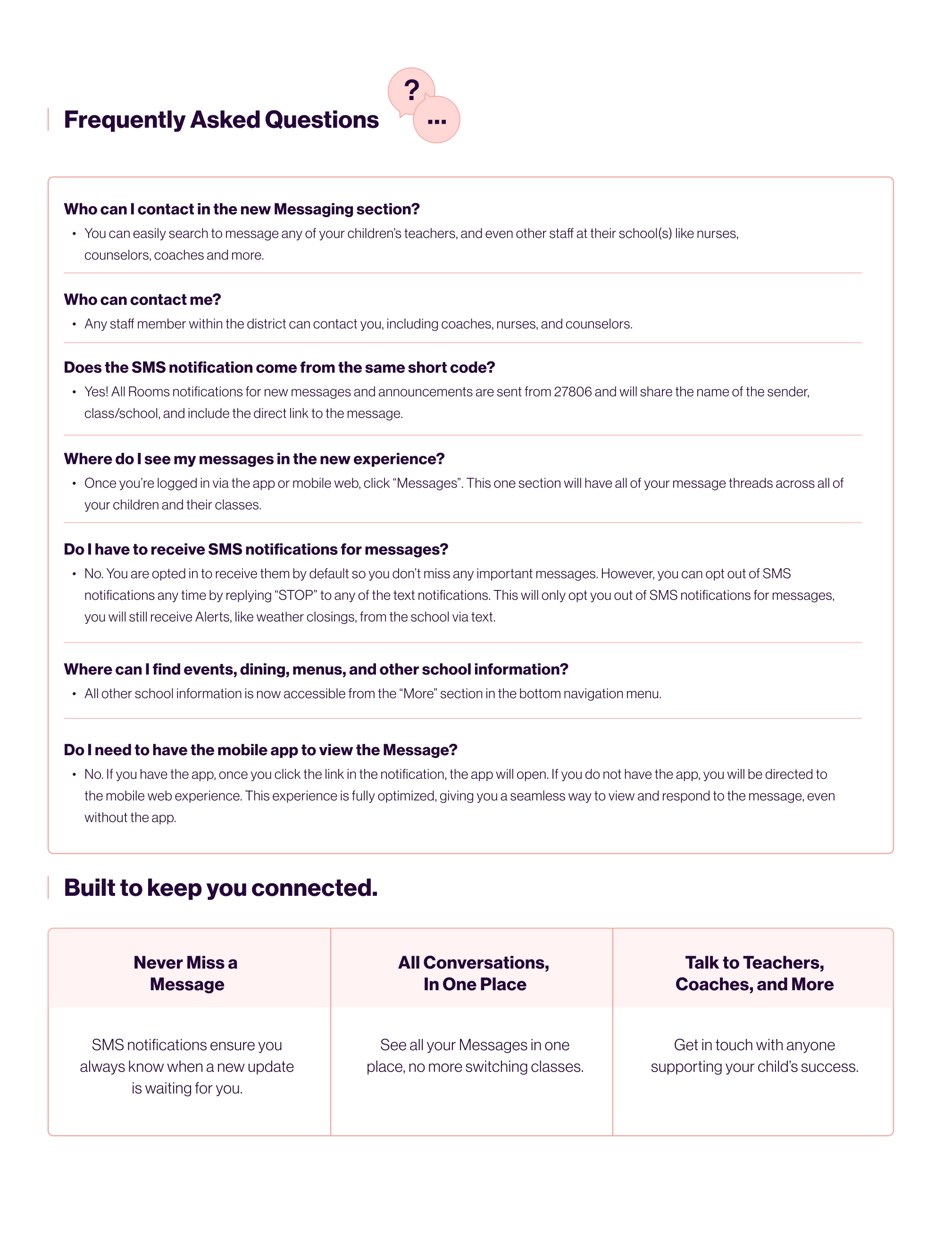
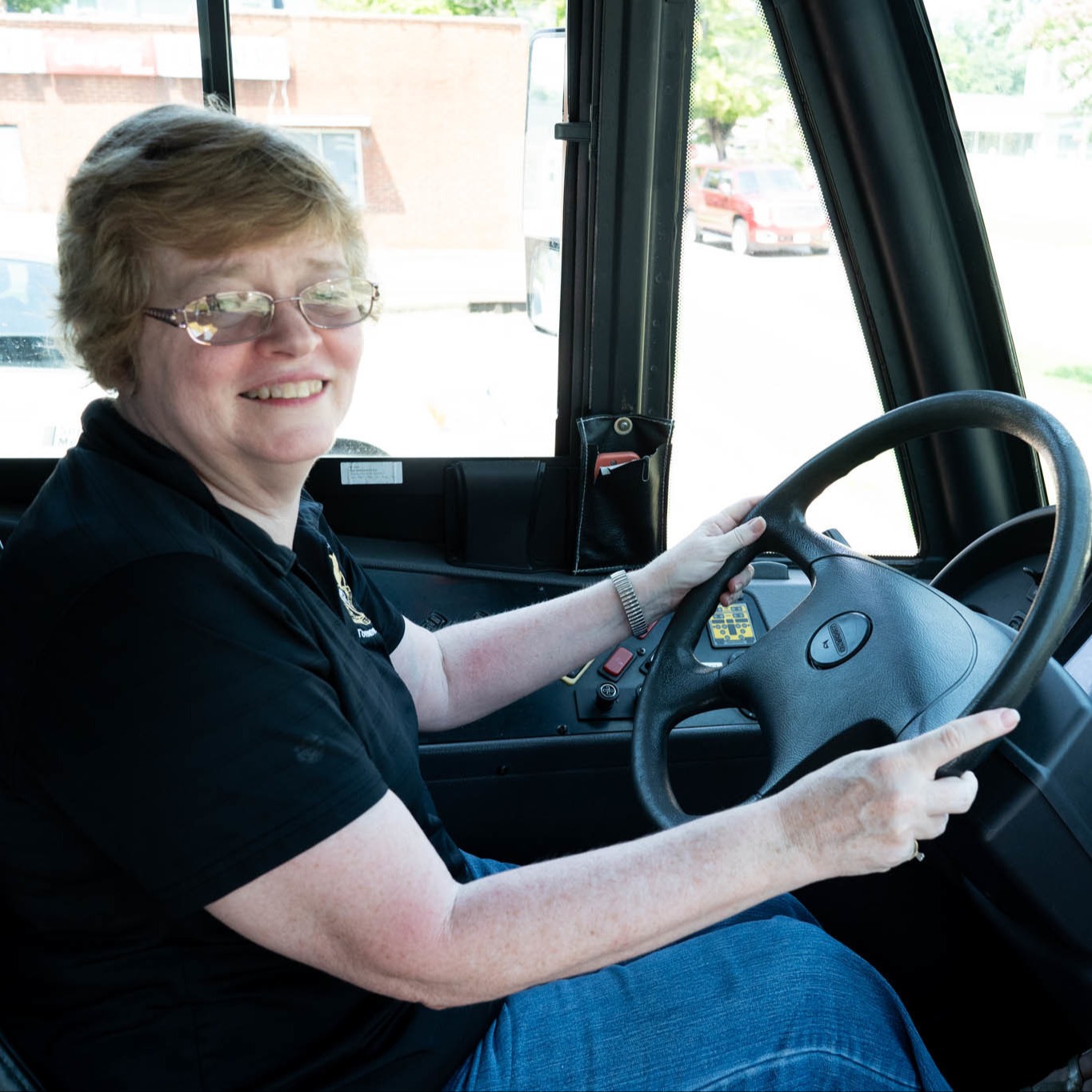
All bus riders will be picked up at the specified bus stops.
Students will be assigned to bus seats.
Bus Routes for the 25-26 School Year will be linked here as soon as they are available!
